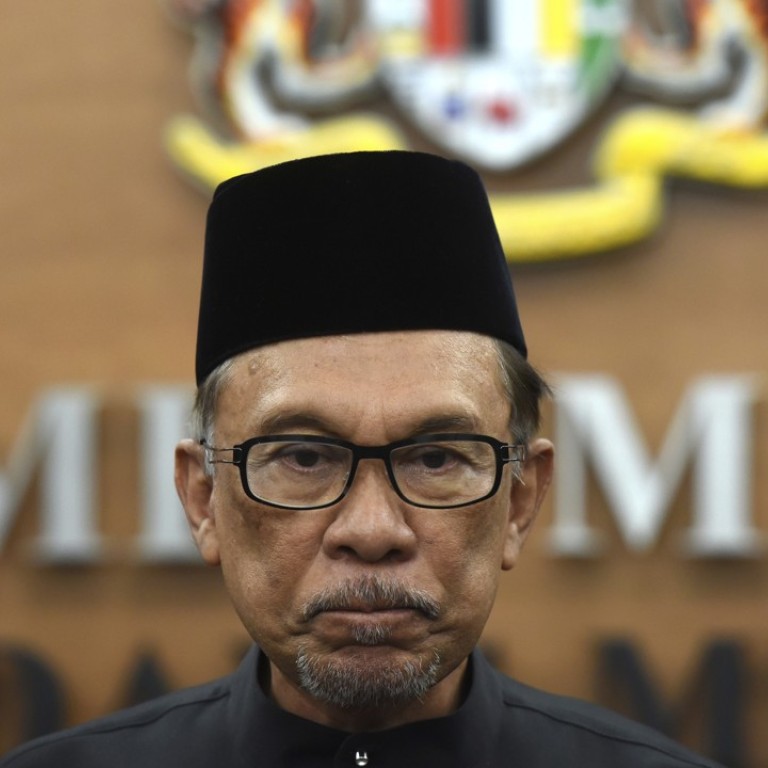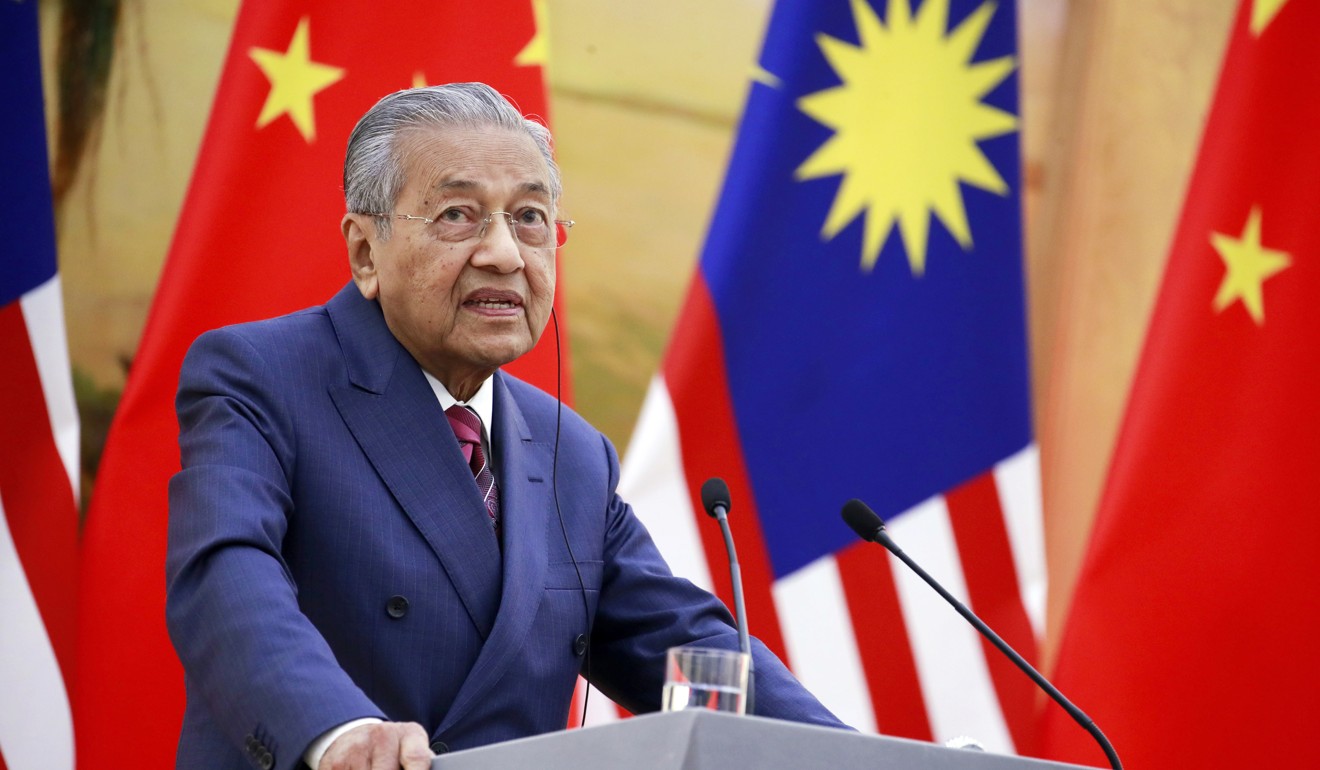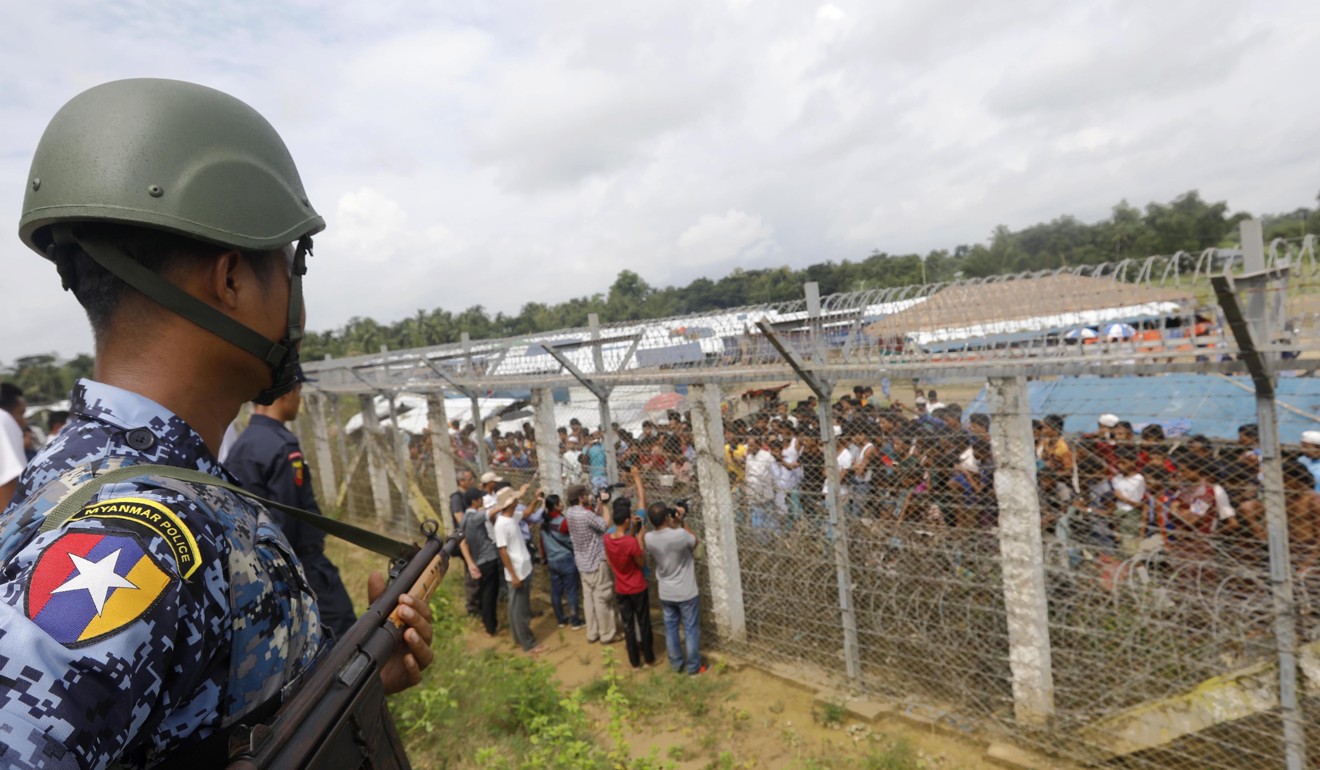
Malaysia’s Anwar Ibrahim to emphasise bilateral ties and Uygur rights on China visit
- The prime-minister-in-waiting is visiting Beijing next week, meeting officials to speak on the future of China-Malaysia relations
- His support of overseas Muslims is seen as a necessary component of domestic politics in the Muslim-majority Asean country
As democracy icon Anwar Ibrahim makes his way to the prime ministership promised to him by 2020, Malaysia’s largest trade partner has begun testing the waters to see if the leader-in-waiting will continue premier Mahathir Mohamad’s occasionally adversarial approach.
In a recent interview, Anwar told Nikkei that on his trip to China next week, he would be meeting officials to speak on Malaysian rule of law and the future of China-Malaysia ties.
“They want to know from me what the future is like,” Anwar told the Nikkei Asian Review, adding that he would emphasise the need for a strong bilateral relationship.
Malaysian PM-in-waiting Anwar Ibrahim insists no timeline on taking power as he makes official return to politics
He also urged Beijing to recognise the rights of the Uygur Muslim community, particularly their right to freedom of religion and movement, and said that any form of violence – whether by the state or by society – could not be condoned.

“Beijing wants to know if Anwar will pursue a different policy to Mahathir’s,” said James Chin, director of the University of Tasmania’s Asia Institute. “Anwar will have to take a less strong stand than Mahathir given that the latter has stature as Asia’s eldest statesman. Anwar has less political clout – but by the time Anwar takes over, the issues we see today such as cancellation of Chinese projects, will be old news and so Anwar will have less to worry about.”
Ngeow Chow Bing of University Malaya’s Institute of China Studies said Beijing was in for no surprises, as “there will be more continuity in Malaysia’s China policy rather than substantial change”.
“There’s a perception that Anwar is more pro-US, but this doesn’t necessarily mean that he will lean towards the west and more indifferent towards China,” he said. “At the moment he will be supportive of Mahathir.”
Malaysia’s Anwar Ibrahim is open to dissent – but not when it comes to when he’ll replace Mahathir Mohamad
“Malaysia has always been supportive of the Uygurs and wants Beijing to recognise the rights of Muslims in China – but there is no talk of an independence movement,” Chin said.

Ngeow echoed this, saying that as a leader “looked up to by the Muslim public, [Anwar] is concerned about the developments in Xinjiang. But I think he’s willing to listen and understand, not just for the sake of criticising China.”
It is a necessary component of domestic politics in the Muslim-majority Asean country that leaders both in-waiting and incumbent must be seen to protect the rights of Muslims across the world. Malaysian leaders have also criticised Myanmar over the Rohingya genocide, much to Naypyidaw’s consternation and despite Malaysia’s own refugee-unfriendly policies, according to economist Woo Wing Thye of Malaysia’s Jeffrey Cheah Institute on Southeast Asia.
China features too heavily in Malaysia’s trade dealings for the nation to run the risk of upsetting Beijing – and a general principle of current don Mahathir is that Malaysia does not want to be a client state of the United States.
Anwar Ibrahim Q&A: Malaysian democracy icon on prison, dissent and the cautious approach to race
This stand was made clear in recent statements from Malaysia’s top trade negotiator, Norazman Ayob, who emphasised the importance of the Regional Comprehensive Economic Partnership, stating it was a top priority and that the conflict between the US and China had provided impetus for its early conclusion.
“Malaysia will not want to choose sides in Big Power confrontation unless one side is actively involved in trying to unseat the government,” Woo said. “Anwar will be no different from either Mahathir or Abdul Razak [the former prime minister who established Malaysia-China diplomatic relations] – China is too important to be offended unintentionally.”

